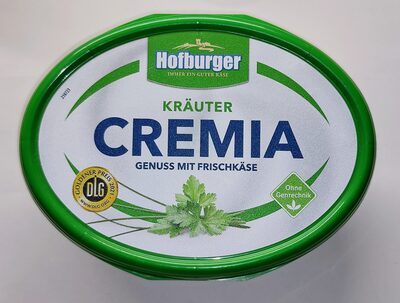
Barcode: 4061458046114
Cremia – Kräuter
HALAL
📝 Reason: The product ‘Cremia – Kräuter’ has been analyzed for Halal compliance. Most ingredients are plant-based or derived from Halal sources, making the product generally Halal. However, the ‘Aromen’ (flavors) ingredient is marked as Doubtful due to the lack of specific source information. According to Islamic dietary laws, uncertainty about an ingredient’s source requires caution, hence the Doubtful status for ‘Aromen’. The presence of any Doubtful ingredient affects the overall Halal compliance, leading to a Doubtful Halal_Result. Reference: Quran 5:3, which outlines prohibited foods, and general Halal dietary guidelines.
📄 Certificates: None
Ingredients:
Details
Is Cremia – Kräuter Halal? Uncover Its Status
Cremia – Kräuter, a delicious creamy cheese spread infused with herbs, has garnered interest among consumers seeking Halal products. With a growing concern for dietary laws in Islamic traditions, understanding the Halal status of this product is essential. Upon analysis, we find that Cremia – Kräuter is predominantly Halal, although a key ingredient introduces some uncertainty.
Overview of Ingredients
The ingredients of Cremia – Kräuter include:
- Frischkäse (Milch, mikrobieller Labaustauschstoff, Käsereikulturen)
- Kräuter (Petersilie, Schnittlauch, Liebstöckel)
- Gewürze (Pfeffer, Zwiebel, Knoblauch)
- Speisesalz
- Aromen
- Verdickungsmittel: Johannisbrotkernmehl (E410)
- Säuerungsmittel: Citronensäure (E330)
Halal Status Breakdown
According to the assessment:
- Frischkäse (Milk): This ingredient contains milk and microbial sources which are generally Halal-based. The inclusion of milk complies with Islamic dietary laws.
- Kräuter (Herbs): The herbs used like parsley, chives, and lovage are plant-derived, affirming their Halal status.
- Gewürze (Spices): Ingredients like pepper, onion, and garlic are also plant-based, thus recognized as Halal.
- Speisesalz (Salt): As a mineral product, salt is naturally Halal.
- Aromen (Flavors): This component raises concerns as it can originate from various sources, which may not necessarily be Halal. Therefore, without specific sourcing information, it is classified as Doubtful.
- Verdickungsmittel: Johannisbrotkernmehl (E410): Derived from carob beans, this thickening agent is confirmed to be Halal.
- Säuerungsmittel: Citronensäure (E330): This souring agent is derived from citrus fruits and is classified as Halal.
Understanding Doubtful Ingredients
Islamic dietary laws interpret uncertainty surrounding an ingredient’s source as a basis for caution. The ingredient labeled Aromen poses a risk, as its true composition is unclear. Given these considerations, it cannot be declared with complete assurance as Halal. Islam encourages transparency and certainty in dietary consumption, reinforcing this prudent approach.
Conclusion
In conclusion, while the main components of Cremia – Kräuter are primarily Halal, the ambiguity surrounding the Aromen ingredient casts doubt on the absolute Halal status of the product. It is essential for consumers to comprehend the sources of their food and the implications of various ingredients on their dietary choices. For those adhering strictly to Halal dietary laws, it is advisable to consider the ingredient list judiciously or consult further for more specifics on the flavors used in Cremia – Kräuter. The Quran (5:3) outlines which foods are prohibited, thus ensuring adherence to Halal principles is paramount.

